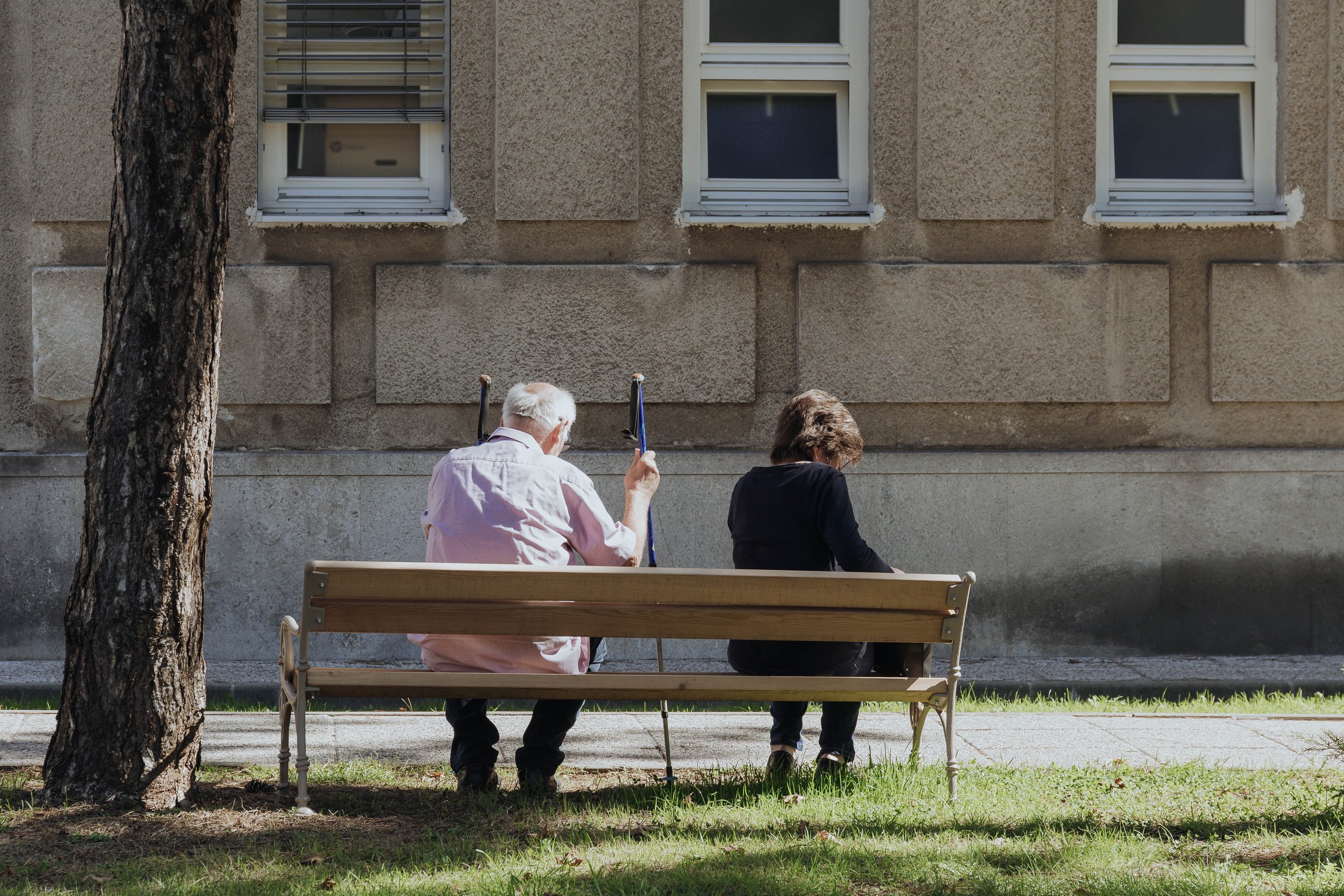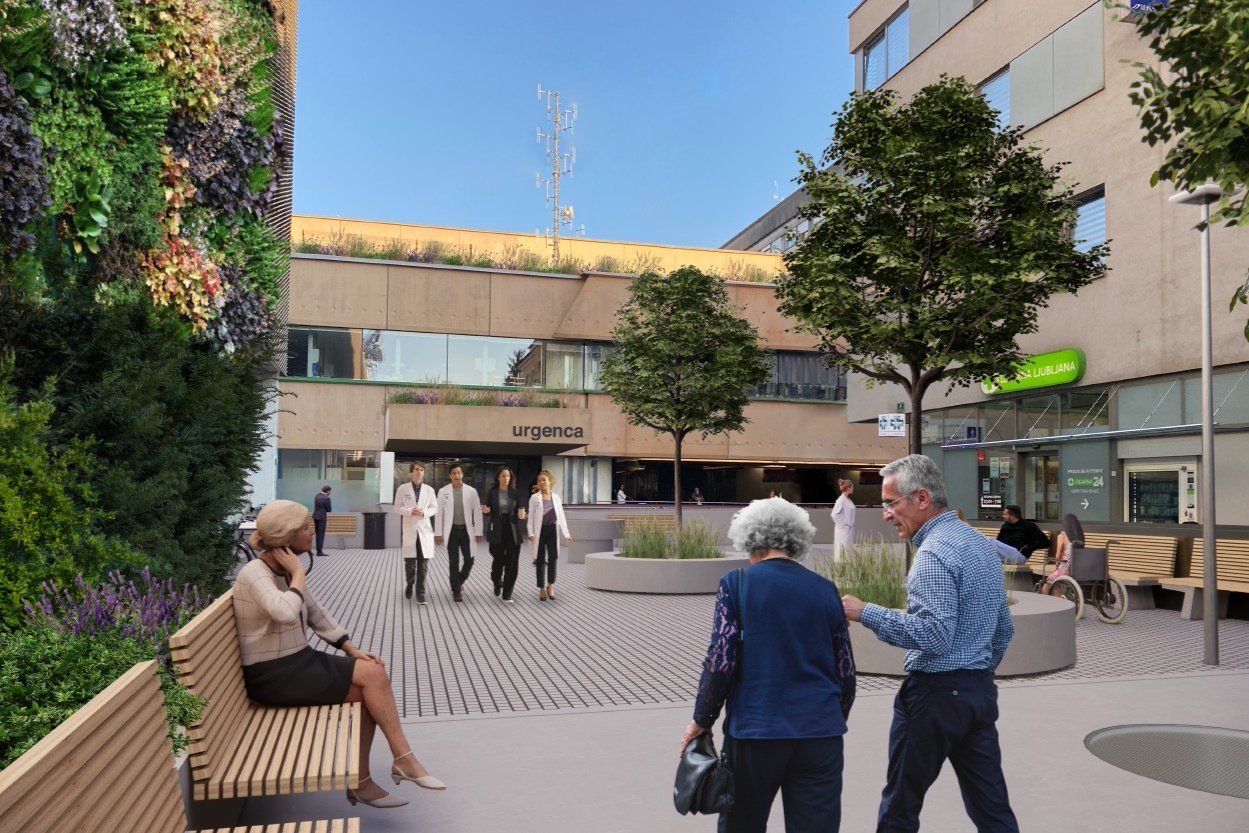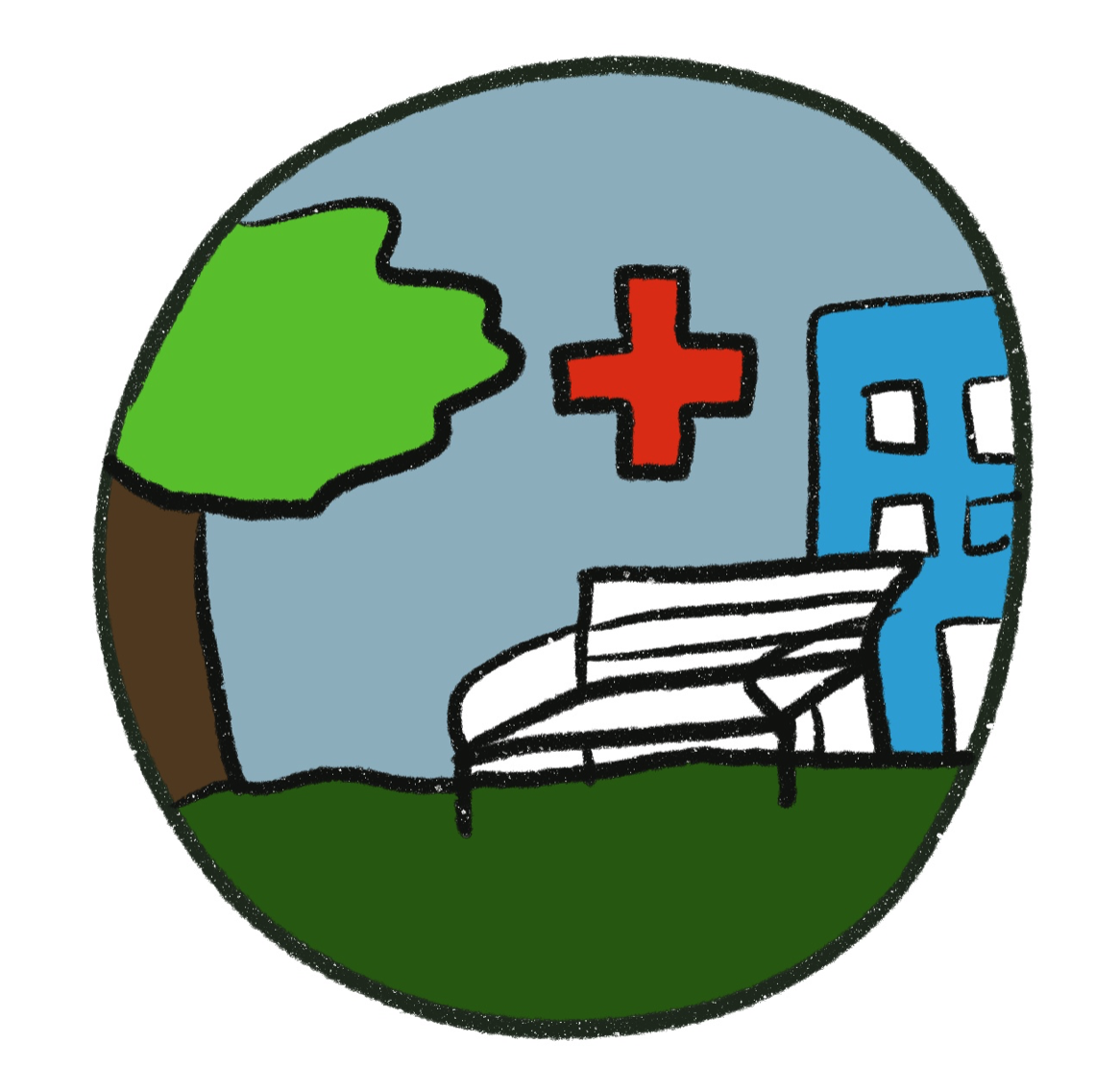Project Description:
What is the user experience of patients in open spaces of urban healthcare institutions? The project aims to answer this research question by including vulnerable users (patients) as citizen scientists to collect data needed to evaluate and improve open space planning, management and maintenance. Citizen scientists will be able to measure their user experience of open spaces in healthcare institutions digitally with an app, or with assistance from our team, should they need it.
Project Type: Kick Starter
Theme: Cities for Life, Health
Mentor: Isabelle Bonhoure
The Importance of Open Space in Health Care Facilities
Open spaces of urban healthcare institutions (hospitals, health centres, nursing hospitals and nursing homes) have the highest concentration of vulnerable users: patients and the elderly. They enable users to orient, relax, socialise and establish contact with nature and the city.
Research shows green open space lessens the levels of stress, improves recovery and lowers the level of medications needed. Despite that, the quality of open spaces in healthcare varies greatly across Ljubljana. Many spaces do not provide users with the highest degree of comfort. But what is the actual user experience of patients in open spaces of community health centres?

The project Healthcare Space UX aimed to answer this research question by including users in data collection. The project Healthcare Space UX was initiated by Prostorož, a non-profit urban design studio. The core team consisted of Zala Velkavrh, Naja Kikelj, Jan Šimnovec and Alenka Korenjak. We worked on five different locations, all owned by the Community Health Centre Ljubljana, a public organisation founded by the City of Ljubljana.
We managed to crowdsource data from more than 500 citizens, which enabled us to gain a detailed insight into the use, needs and experience of patients visiting community health centres. Throughout the process, IMPETUS provided us with support on data collection and impact measurement. Most importantly, the expertise of our wonderful mentor Isabelle Bonhoure helped us navigate the work throughout the project, making sure that our work is methodologically and analytically sound.
The project is important because it is the first research into the user experience of open spaces of urban healthcare institutions in Ljubljana. Patients and their relatives were activated as citizen scientists to collect data needed to evaluate and improve open space planning, management and maintenance.

The large amount of data collected helped us build a solid case for open space improvements, be it maintenance, investment in additional infrastructure and careful preservation of existing greenspace amenities. Beyond that, it showed the decision-makers in Ljubljana how a patient-centric approach can be applied in practice.
As we write this report, we are already in negotiations with the city on concrete short- and long-term investments in open spaces of community health centres.
Hopefully, other health institutions around Slovenia will follow suit.



